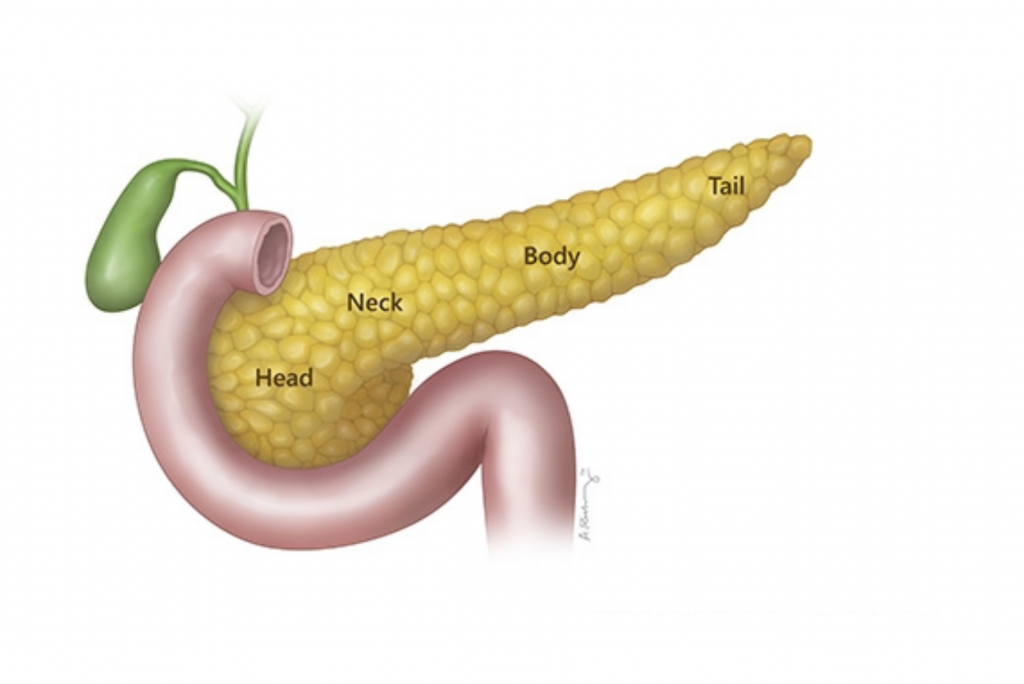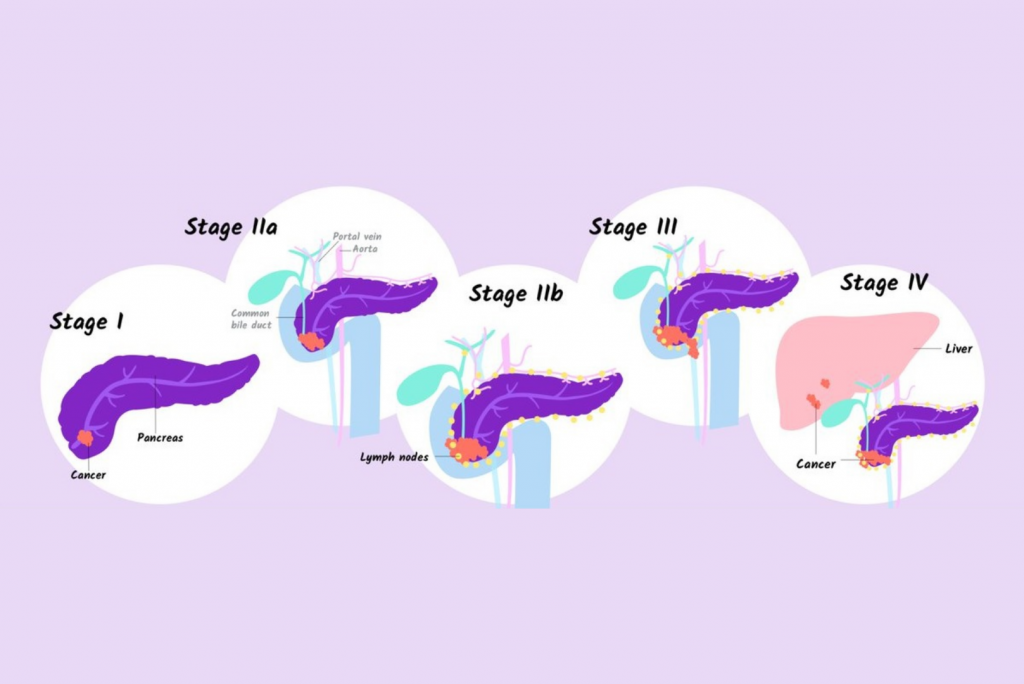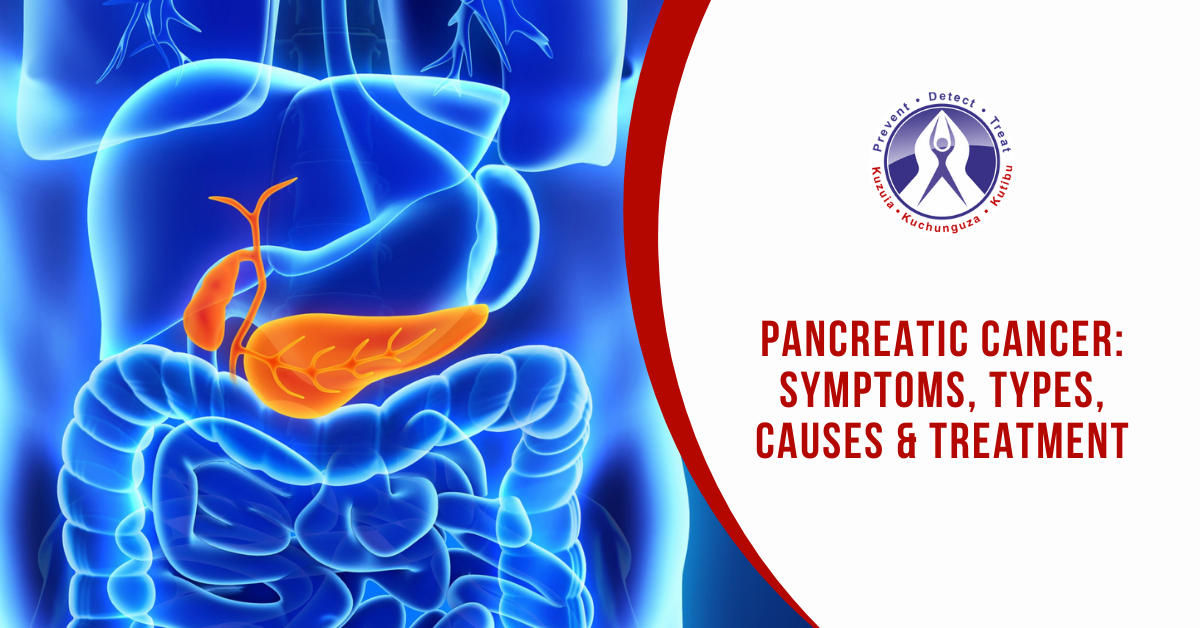Pancreatic Cancer: Symptoms, Types, Causes & Treatment
1,452 viewsLike most other organs in our body, the pancreas is also inclined to get cancerous. Pancreatic cancer is in fact, a crucial situation that requires immediate diagnosis and the right treatment. However, a lot of people are not aware of this prime organ.
We often focus on eating healthy especially in the post COVID – 19 scenarios. These healthy food & drinks we consume for our immunity are broken down into nutrients by the human digestive system. Thus, our digestive system plays a vital role in our body. The system includes various organs that aid immensely in this process. One such elongated organ is our pancreas. In reality, it’s one of the most solid organs in our digestive system. Read along to know more about the pancreas, pancreatic cancer, its various types, symptoms, causes, and its treatment.
What Is Pancreatic Cancer?

Our pancreas is located in the back of our stomach. It’s an extended fish-like spongy organ that’s about 6 inches long. For some, it can also grow up to 10 inches. However, to gain a deeper understanding, this organ has 4 sections. The head, neck, body, and tail that’s the end of the organ. The head, neck, and body are the prime sections. These help in letting out the digestive enzymes (proteins) for the other organs. Medically, this is called the exocrine function which assists in digestion. Nevertheless, the supreme function of the pancreas also includes releasing hormones like insulin and glucagon that manage the blood sugar levels.
Both these pancreatic functions go hand in hand. So, when does the problem start? Precisely, when there is an abnormal growth in our pancreas. This growth uncontrollably begins in the tissues of the organ and later, develops into pancreatic cancer. Pancreatic cancer is often identified in the beginning stages when it’s most treatable. This happens as sometimes they do not show up pancreatic cancer signs unless it’s spreading to the surrounding organs. Despite this, it still can be treatable. So, consulting your doctor at the right time can save you from this pancreatic problem.
Pancreatic Cancer Symptoms: What Are The Warning Signs of Pancreatic Cancer?

The presentation of pancreatic cancer signs can vary. In most cases, advanced pancreatic cancer symptoms are prominent. However, in the early stage, pancreatic cancer signs are typically subtle. If the person regularly takes good care of his/her body and is very attentive, they may be able to detect it soon with medical help. This way, it can be easy to form a prognosis (likely course of treatment) for pancreatic cancer.
The most common symptom of pancreatic cancer is abdominal pain. In simple words, the pain can be generally in the lower back or on your stomach. In some cases, jaundice which causes yellowing of the skin or dark urine can be a symptom of pancreatic cancer. An unexplained weight loss or loss of appetite may also be an alarming factor to start thinking about it.
Additionally, blood clots and depression can be some of the other symptoms of pancreatic cancer. Comparatively, these two symptoms can still be more noticeable than the rest. In any case, one should immediately seek medical attention if they are experiencing any of these pancreatic cancer symptoms. You can also reach out to our free consultation portal to discuss these symptoms.
Types Of Pancreatic Cancer

The right treatment of pancreatic cancer depends on its type and its stage. Each type and pancreatic cancer staging differs from patient to patient. So first, let us know more about the two main different pancreatic cancer types in detail.
-
Pancreatic Adenocarcinoma
This is one of the most common types of pancreatic cancer. In this pancreatic cancer type, abnormal growth starts in the exocrine cells of the organ. Most of the cells in our pancreas are exocrine cells. As discussed above, these cells are responsible for creating digestive enzymes. They break down proteins, fats, and carbohydrates from our food and make it into molecules. In this way, the small intestine can absorb the nutrients.
Later, it sends the nutrients in our bloodstream to provide us with energy. However, this process can hamper when pancreatic adenocarcinoma forms. It happens due to the abnormal growth starts developing in the lining of the pancreas. That’s where exocrine cells are present. That’s why it is also known as exocrine pancreatic cancer.
-
Pancreatic Neuroendocrine Tumors

This type of pancreatic cancer is also known as pancreatic NETs. Comparatively, this type is less common. Pancreatic neuroendocrine tumors develop when the endocrine function of the pancreas slows down. The endocrine function takes place effortlessly due to endocrine cells. These cells help in creating and releasing important hormones in our bloodstream.
Some of these hormones include insulin, glucagon, somatostatin. They are essential for the growth and proper functioning of our body. But, when a tumor (abnormal cells that form lumps) develop in the endocrine cells, its function slows down. Hence, it leads to pancreatic neuroendocrine tumors.
Pancreatic Cancer Stages
Once the right pancreatic cancer type is identified, the pancreatic cancer staging is determined to give the right treatment. The stages of pancreatic cancer will help us understand how much cancer has been spread in the organ. The stages are ranked from I to IV, four being the most severe stage. Here are the meanings of each of these stages:
Stage I – Pancreatic cancer is detected early. This means the abnormal growth or the cancer cell is only in the pancreas. It can be mainly in the linings of the organ.
Stage II A – Here, pancreatic cancer is still found early. However, it spreads beyond the lining of the pancreas. It can be in the nearby tissues. Luckily, it has not formed into lymph nodes.
Stage II B – In this stage, pancreatic cancer has developed in the pancreatic duct by forming lymph nodes in the organ.
Stage III – During this pancreatic cancer staging, lymph nodes grow. The cancer cells can spread to extensive blood vessels.
Stage IV – Here, the pancreatic cancer staging is advanced. This is because apart from the pancreas it may also spread in the surrounding organs. Most probably it can be found in the liver organ.
Causes Of Pancreatic Cancer

The exact pancreatic cancer causes are still unknown. However, the most common pancreatic cancer cause can be growing age. Typically, most pancreatic cancer patients are above 50 years of age. While we cannot do anything about the age factor, there are some modifiable risk factors that we can avoid. These include smoking and drinking alcohol. Occasionally, these activities may tend to lead to scarring of the pancreas. This can be an increased pancreatic cancer risk factor.
Apart from this, several genetic aspects can play a role in developing pancreatic cancer. This is because the way our cells behave inside the body also depends on our genes. Genetic problems like Hereditary Pancreatitis and Peutz-Jeghers Syndrome can cause pancreatic cancer. However, these genetic conditions are quite rare. But yes, like any other cancer, a family history of pancreatic cancer can increase the chance of occurrence.
Treatment For Pancreatic Cancer
 During the initial examination, your doctor will ask you about the pancreatic cancer symptoms. Each person can have different symptoms. Along with symptoms, he will also check your medical history. This will help your doctor to figure out your linked risk factor (if there’s any).
During the initial examination, your doctor will ask you about the pancreatic cancer symptoms. Each person can have different symptoms. Along with symptoms, he will also check your medical history. This will help your doctor to figure out your linked risk factor (if there’s any).
Later, there will be various tests to further provide the right treatment. These tests may include blood tests, an MRI, or a CT scan. This can give a comprehensive image of your pancreas. In some cases, an endoscopic ultrasound is done. Here, the doctor attaches a tube with a camera and puts it in the stomach to get a clear picture of your pancreas.
If needed a biopsy will be done to get a sample of your tissues in the pancreas. This helps the doctor to provide the right treatment option. The two main objectives here are killing the cancerous cells and preventing their spread. Based on this, here are the treatment options:
Surgery
The surgery for pancreatic cancer depends on its stage and the location of the abnormal growth. Surgery can remove the abnormal areas in the organ. However, surgery may not be advisable for advanced pancreatic cancer conditions. This is because it can only remove those cancerous cells that are inside the pancreas. Cancer spread to other organs can be preventable by other pancreatic cancer treatments.
Chemotherapy and Targeted therapy
Here, your doctor will suggest chemotherapy along with other treatments. It uses drugs that eliminate cancerous cells or abnormal growth and can prevent any future growth. This can be a good treatment plan even for advanced stages of pancreatic cancer. In targeted therapy, the treatment can use definite actions and drugs to target the cancerous cells directly. Here, the drugs may not damage the healthy cells in your body.
Radiation Therapy
It is another pancreatic cancer treatment option. Mostly, radiation therapy is used for stage IV pancreatic cancer where cancer spreads in the surrounding organs. Here, they use X-Rays and high beams of intense energy to destroy the cancerous cells in the body.
Conclusion
Our pancreas is one of the most fundamental organs of our digestive system. Maintaining a healthy diet and daily exercise can keep you fit. Add fruits, whole grains, and vegetables to your diet. Additionally, limit your chemical exposure at the workplace (if any). Above all, avoiding habits like smoking and drinking is a mandatory practice one should follow for a healthy pancreas. Not just that, your overall health benefits when you choose a healthy lifestyle. If you experience any pancreatic cancer symptoms, it’s important to diagnose it immediately. In particular, timely detection is the best prevention. So, ensure that you visit a doctor to find out the type of pancreatic cancer and the right pancreatic cancer treatment plan. A specialized diagnostics facility at Regency Medical Centre can provide you with the right diagnosis and the best possible patient care.
Doctors, nurses, and support staff at Regency Medical Center are working 24 hours to ensure our patients’ emergency needs are taken care of. We are there to help the people of Dar es Salaam with medical emergencies. Contact us here for any COVID-19 related issues or you can call the emergency staff on +255 765 835 950.

